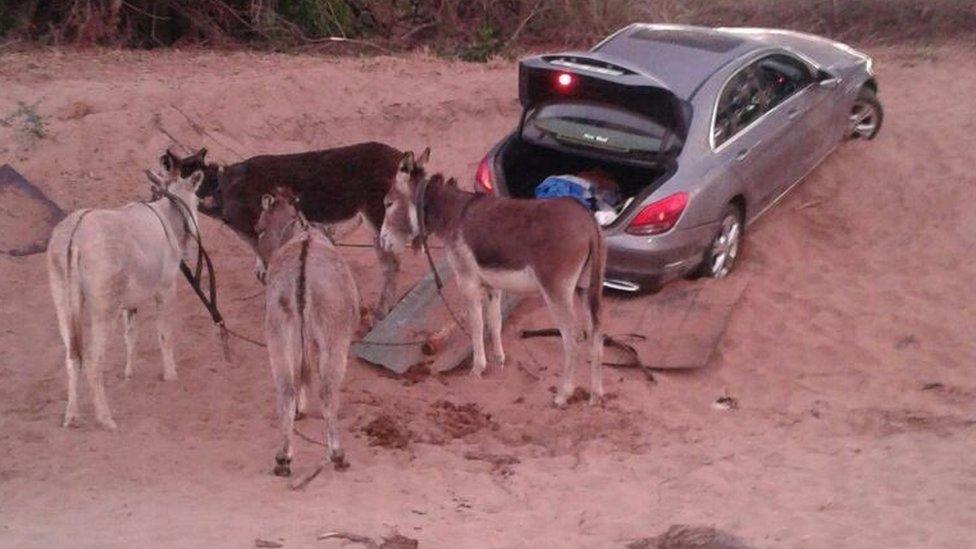Kenya bans commercial slaughter of donkeys
- Published
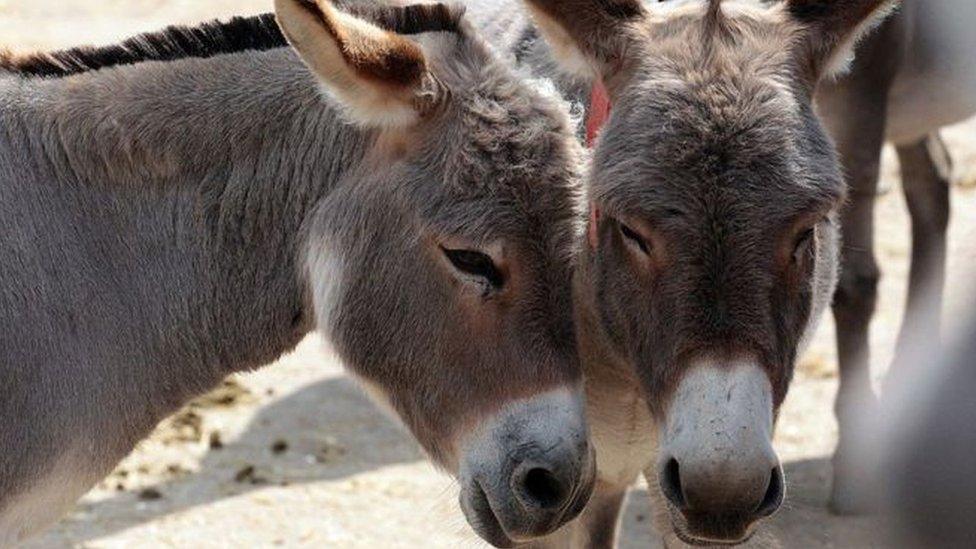
About 1,000 donkeys are said to be slaughtered each day
Abattoirs in Kenya will be banned from slaughtering donkeys from next month, the agriculture minister has said.
The East African nation legalised trade in donkey meat and hide in 2012 to meet growing demand in China.
Minister Peter Munya said the decision had been a mistake as it had caused the donkey population to fall.
Many people in rural areas use donkeys to fetch water and firewood, raising fears that their dwindling numbers will increase the workload of women.
Kenya has about 1.2 million donkeys compared with 1.8 million a decade ago, according to government data published last week.
Women and men from farming communities protested outside Mr Munya's offices in the capital, Nairobi, on Monday to demand action to protect the donkey population.
"When donkeys are stolen or killed, women are turned into donkeys," read a placard held by the protesters.
Mr Munya later told reporters that abattoirs licensed to slaughter donkeys had a month to switch to slaughtering other animals - or else they would be closed.
"The policy of slaughtering donkeys for meat was not well thought out," the minister said.
"The benefits that are brought by the traditional work that donkeys do are much more than whatever benefit you might get by slaughtering a donkey and eating the meat," he added
'I woke up and my donkey was gone'
The mass slaughtering of donkeys has also spawned a black market with skin-smuggling networks hiring gangs to steal donkeys, locals say.
Kenya has four abattoirs licensed to slaughter the animals.
Brooke East Africa, a donkey advocacy group, estimates that at least 1,000 donkeys are slaughtered each day in Kenya.
The value of an adult donkey more than quadrupled in Kenya after their meat was legalised for human consumption in 2012, according to the Africa Network for Animal Welfare.
There is huge demand for donkey skin in China.
When skins are boiled, they produce a brown gelatine, which is the essential ingredient in Chinese "ejiao" products - popular health foods and traditional medicines.

Donkey trade - the facts:
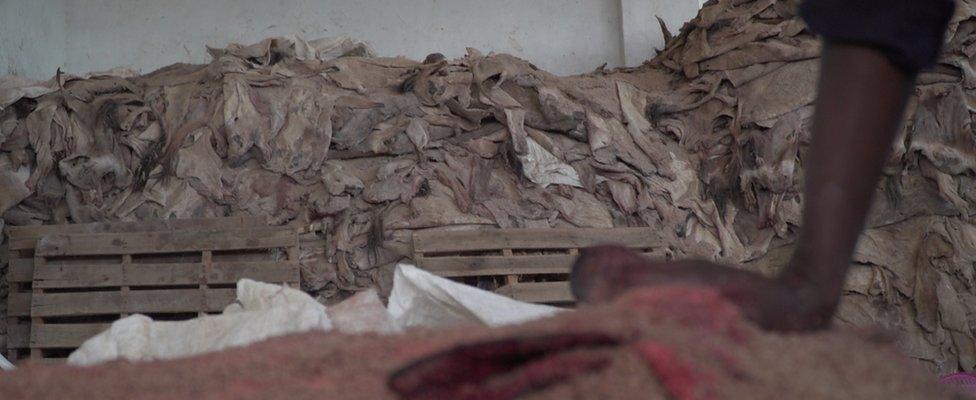
Donkey hides piled up ready for export
1.8 million skins are traded every year - according to estimates from UK-based charity The Donkey Sanctuary, external - but the demand is as high as 10 million
China's donkey population dropped from 11 million in 1990 to 3 million today, based on government data
Ejiao, the gelatine produced by boiling donkey skins, can sell for up to $388 (£300) per kg
Uganda, Tanzania, Botswana, Niger, Burkina Faso, Mali and Senegal have banned donkey exports to China

- Published28 April 2017
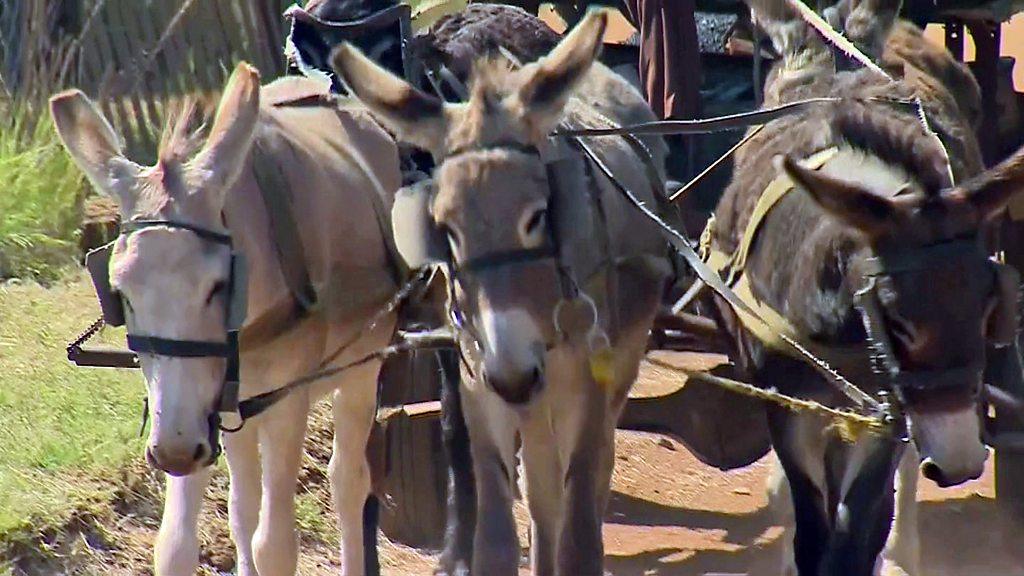
- Published24 January 2017
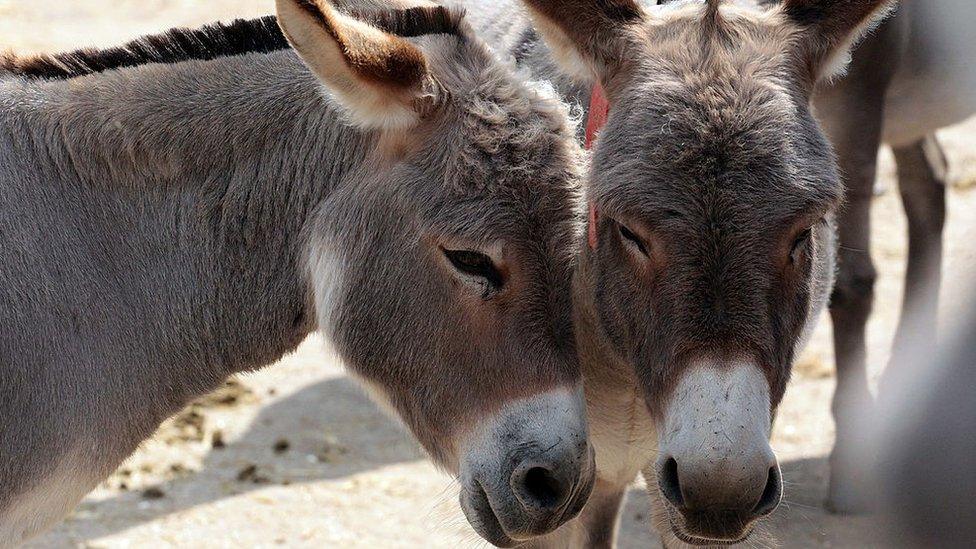
- Published2 August 2017
